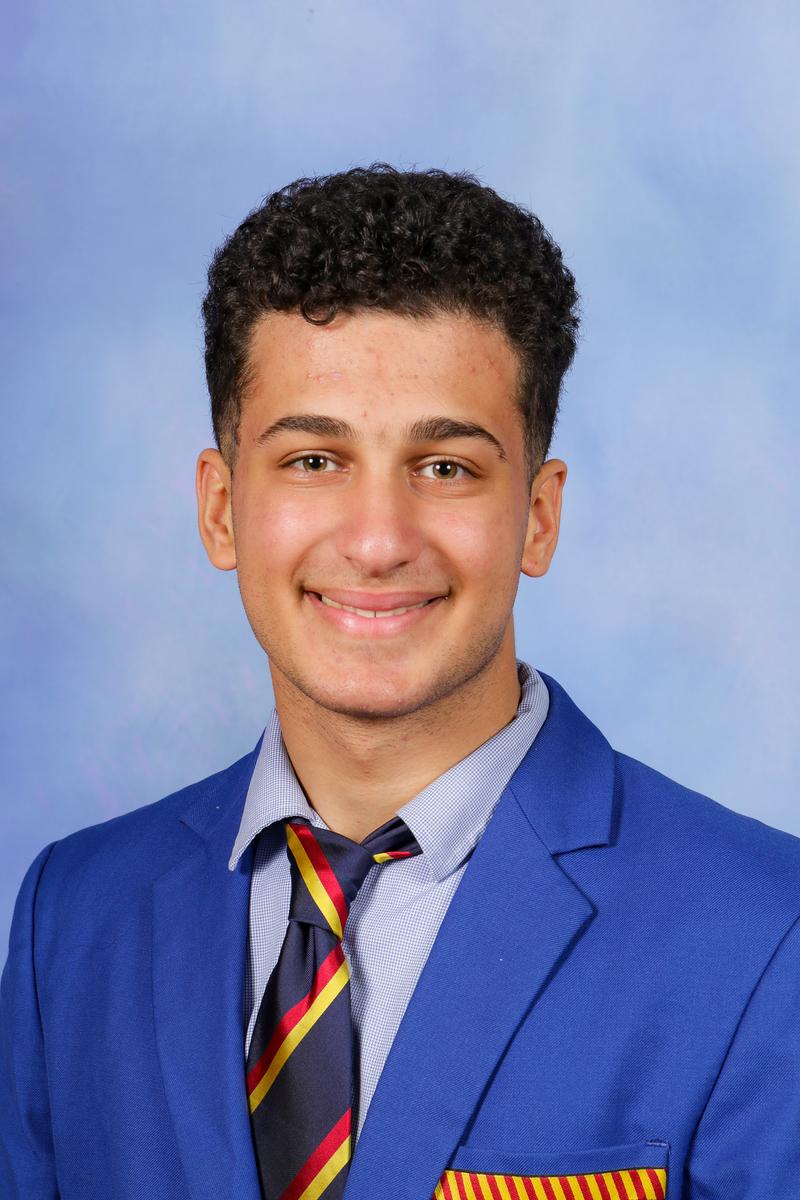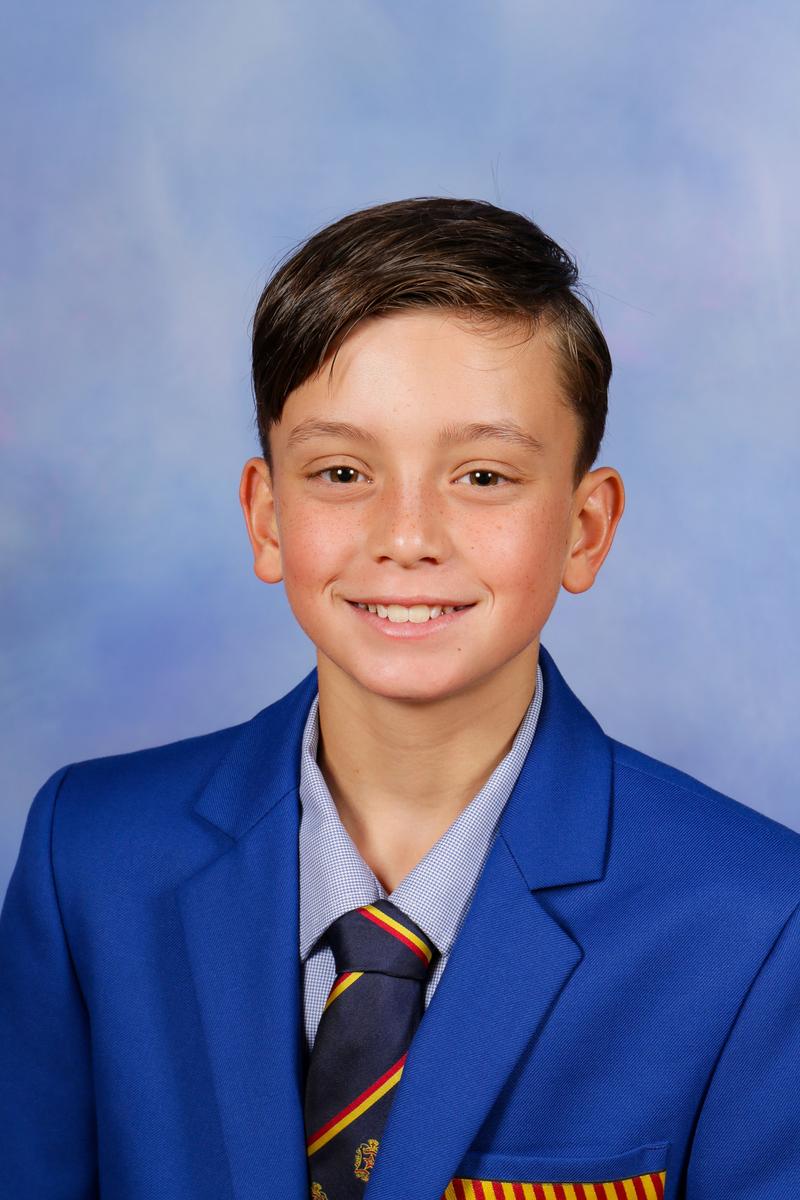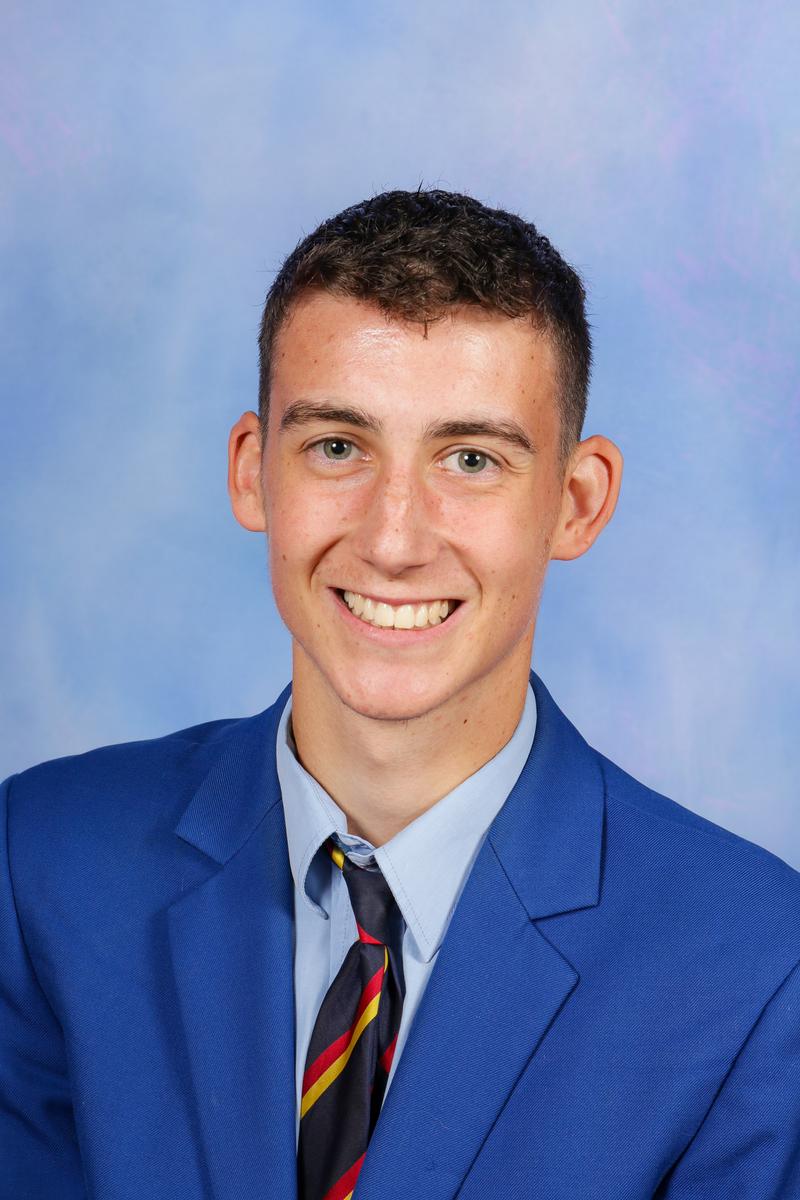Principal's Update
Per Vias Rectas

Principal's Update
Per Vias Rectas
It is a great pleasure to announce our College Captains for 2025.
Maurice Kerbage - College Captain
Finn Clark - College Vice-Captain
Joseph Hetherington - College Vice-Captain
Flynn Hunter - College Vice-Captain
The early announcement comes out of a change in our student leadership arrangements. Given that our current Year 12 Captains have just three weeks of school in Term 4 and need to give all their time and attention to preparing for examinations, we will have our 2025 appointments move into their roles in 2024.
Having met with our new leaders and in speaking with their parents, the level of enthusiasm and pride is very manifest. This team has considerable potential for continuing, and adding to, the tradition of Leadership at the College.
Congratulations to all students shortlisted for these positions. You are all wonderful representatives of the College and will be excellent role models for the student body.








It is with a heavy heart that I announce that Dominic Langdon has decided to resign from his role as Business Manager to explore the next chapter of his career.
Dom is taking long service leave and his last formal day with our College is 4 November 2024. We are thankful to Dom, who has made significant contribution to the College over the past 17 years. Our very best wishes, Dom.
Cross Country
We are in Cross-Country season, with boys in training for the ACC Championships on 11 September. It is promising to hear of our students performing well in recent community cross-country events.










The impact of social media on the mental health of young people has received considerable media attention recently. Social media has become an integral part of daily life for many adolescents. Platforms like Instagram, Snapchat, and TikTok offer a space for self-expression and connection. However, growing evidence suggests that these platforms can also contribute to significant mental health challenges.
Not long ago, the Herald-Sun ran a series of daily accounts of the harrowing experiences of families who had suffered because of the impacts of social media on their children. A growing body of research has found that adolescents who spend more than three hours per day on social media face double the risk of experiencing poor mental health outcomes, including symptoms of depression and anxiety.
A Let Them Be Kids survey indicated that 70% of respondents wanted an increase in the age for access to social media to be lifted to 16, and that 84% felt that social media platforms should be held accountable for harmful and misleading information.
Jonathan Haidt, an American social psychologist and author, has recently spoken on the issue in his new book The Anxious Generation. Haidt talks of the profound impact of technology on today's youth. According to Pew Research, in 2022, 95% of adolescents in the USA have access to a smartphone, and 90% have access to gaming and computer consoles. Additionally, over 97% use the internet daily, with YouTube and TikTok being the most popular social media platform. These figures would be similar in Australia. Haidt speaks on how the rise of social media correlates with increased rates of anxiety, depression, and loneliness among young people. The constant comparison, the cyberbullying, the jealousy and the addictive nature of social media can exacerbate these issues.
The governments of NSW, Queensland, Victoria and South Australia are now considering a ban on social media for children under the age of 16. Currently, users must be at least 13 years to create a social media account, but this has not stopped many underaged children from signing up. The NSW Government will be hosting a summit in October to examine the latest evidence and develop a response to growing community concern about the mental health impacts of social media. With Prime Minister Anthony Albanese having now endorsed a ban on social media for those under 16, some change in legislation is on the cards.
The Federal Government has recently announced a $6.5m commitment to trial an age-verification program that will restrict children’s exposure to inappropriate online content, including pornography and gender-based violence in Australia. However, there are many experts who say that effective age-checking technologies are complex and pose data security risks, with some critics warning about the erosion of privacy.
Psychiatrist and education theorist, William Glasser, argues that it is an individual’s intrinsic motivation and personal attitude that has the most influence over what the individual will think, do, say and choose. Glasser believes that only constant education and discussion of the issues with young people will minimise the harmful effects arising out of use of social media.
While young people and parents recently surveyed by the University of Sydney supported age-verification, they doubted its effectiveness and would prefer safety education, dialogue, and social media company accountability instead. There is a growing consensus that social media companies should be doing more to ensure users’ safety and legislation has been introduced in the USA to this end.
In his book, Haidt offers the following counter to the negative impacts of social media:
Whether or not there is an age legislation and/or media company compliance requirements, the best approach will continue to be constant parent and child conversation that develops guidelines and expectations for appropriate use.
At St Bede’s College, we seek to provide a positive school environment and support parents by offering programs and services to support the mental health and wellbeing of our students. We appreciate the challenges posed by social media and work to establish a healthy, balanced approach to technology use with age-appropriate digital literacy and online safety skills.
The College understands that a mobile phone is advisable for students travelling independently to and from school. As such, College’s mobile phone policy attempts to promote responsible use by students.
The Student Mobile Phone Policy can be accessed on the College website.
Please note the following matters from the policy.
2 September
We are soon to have the Feast Day of another of our College Patrons. Guillaume Nicolas Louis Leclerq was born in Boulogne, France on November 14, 1745.
He became a De La Salle Brother in 1772 as Brother Solomon. After having been a teacher, director and bursar, he became the secretary to the Superior General of the Order. Although he was somewhat shy, he was also a gentle but firm teacher.
Early in the French Revolution, the government of France had overthrown the monarchy. The new government realised the Catholic Church would oppose its radical and violent agenda, and passed laws to persecute faithful Catholics. To continue to function, priests and other religious people were forced to take an oath to support the constitution. Most of the Brothers refused and so were forced gradually to abandon their schools and communities.


Eventually, the Institute was deprived of legal status in France. Brother Solomon refused to take the oath and on the Feast of the Assumption, August 15 1792, he was arrested and imprisoned in a Carmelite monastery - now a prison - together with several bishops and priests. On the night of September 2nd and in the early hours of September 3rd in 1792, 116 prisoners were slaughtered by sword. 115 of those killed have been Beatified by the Catholic Church. One - Brother Solomon - has been made a Saint.
The De La Salle Brothers have established schools in many parts of the world. One of the nations where many of their schools are is Venezuela.
In 2007, a five-year-old girl in Venezuela was bitten by an unidentified animal, presumably a snake. By the time she was taken to the emergency department of the nearest hospital, her entire left leg was inflamed, her temperature high, and doctors could not detect a pulse in her infected foot. As the doctors prepared to amputate her leg in hopes of saving her life, people began to pray. They prayed particularly for the intercession of Blessed Solomon Leclerq, since the inhabitants of the nearby town of Sabaneta de El Hatillo had developed a strong devotion to him.
To everyone’s surprise, the girl’s condition quickly and dramatically improved and the amputation was cancelled. Her recovery was considered miraculous, and in 2016, Pope Francis declared Solomon a Saint. You can read more about Saint Solomon here.
Per vias rectas
Deb Frizza
Principal
St Bede’s College strives to be a place of safety, and we believe safeguarding is a shared responsibility of all, for all. We are resolutely committed to our moral, legal, and mission-driven responsibility to ensure that all College staff, including employees, Board members, committee members, contractors, volunteers, and clergy, act in a manner that promotes the inherent dignity of each of our students and their fundamental right to be respected, heard, and nurtured in a safe school environment. All College staff must uphold and demonstrate through their actions and interactions the duty of care we have towards all children, young people, and adults at risk. Accordingly, a zero-tolerance approach to child abuse or safety violations is expected and enforced.
We acknowledge the traditional custodians of this land, the Bunurong people of the Kulin Nation, whose ancient wisdom nurtured these lands and waters for millennia.